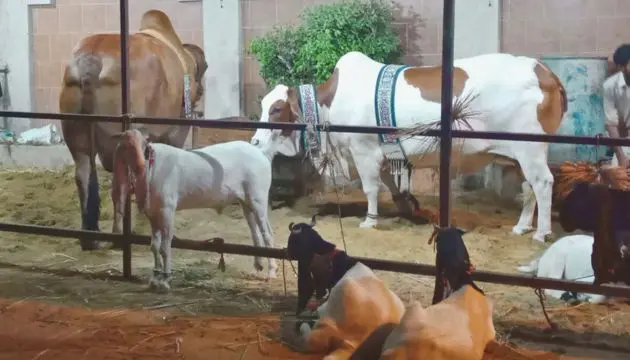KARACHI: The State Bank of Pakistan started a “Go Cashless” campaign to encourage digital payments and reduce the use of cash for cattle shopping during Eid ul Adha.
This campaign, which supports the SBP’s goal of promoting digital financial services across Pakistan, began on May 19, 2025, and will continue until June 6, 2025, or Eid night, according to a statement from the central bank.
The campaign, in collaboration with banks, focuses on making it easier to buy and sell sacrificial animals in 54 selected cattle markets nationwide. Building on last year’s efforts, the campaign aims to increase the use of digital payments among people in these markets.
In these cattle markets, digital payment options can be used for various transactions, such as buying animals, paying for items like water and feed, and covering parking fees.
ALSO READ | Govt to provide energy-saver fans on easy installments
To help both buyers and sellers during this time, the SBP has temporarily increased transaction limits from May 19 to June 15, 2025:
- For Branchless Banking Level-1 Accounts, Asaan Account/Asaan Digital Account, and Merchant Accounts, there are no daily transaction limits, and the monthly limit has been raised to Rs5,000,000.
The public is encouraged to use these digital payment services during Eid ul Adha to help create a more efficient and inclusive financial system in Pakistan.
In Rawalpindi, the district administration plans to set up 11 cattle markets and has banned illegal markets and the sale of sacrificial animals on streets and roads.
Deputy Commissioner Dr. Hassan Waqar Cheema told a private newspaper that, due to concerns about Congo fever, the district administration will establish cattle markets with measures to protect people and animals from the virus.
ALSO READ | Punjab approves largest climate observatory to combat climate change
He said the Punjab government has instructed that no negligence will be tolerated, and district administrations must follow all standard procedures. Staff from livestock, veterinary, revenue, police, and civil defense departments will be assigned to checkpoints near the markets.
He added that cattle markets should be located away from city areas, and a record of all animals in the markets must be maintained.
Dr. Cheema also said that a veterinary doctor should be present at the entrances of cattle markets to check animals before they are allowed to enter.











